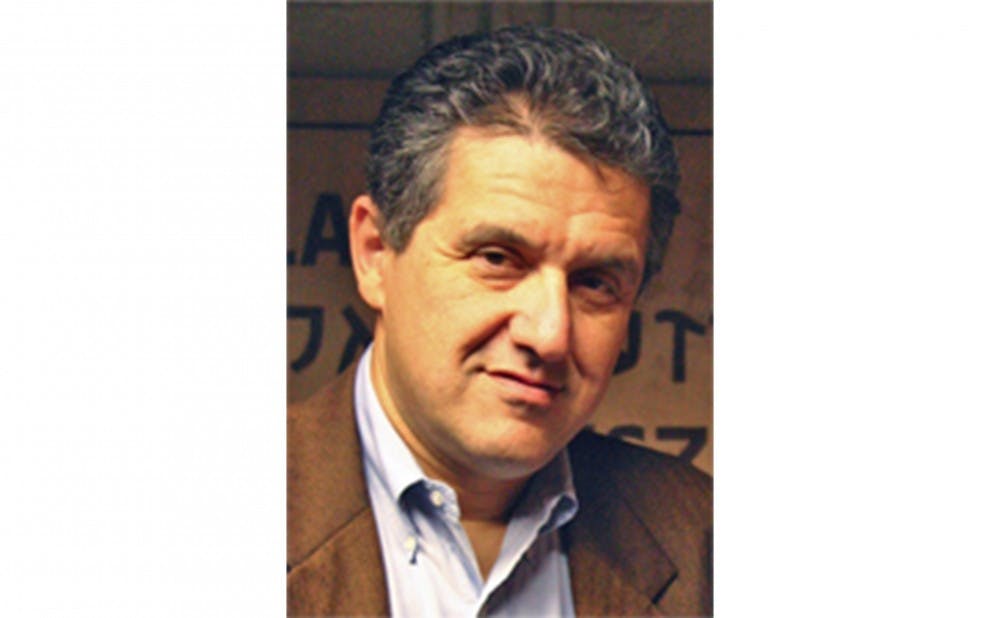Paul Goldberg, Trinity ’81 and the editor and publisher of The Cancer Letter—a weekly national newsletter that closely investigated and reported on the Anil Potti scandal—has written his first novel, “The Yid.” His book, which was reviewed in The New York Times Jan. 20, is set in the Soviet Union and revolves around the end of Joseph Stalin’s life. Goldberg, who immigrated from Russia in 1973, focused on Stalin’s final blow to the country’s remaining Jewish citizens, drawing on the experiences of his friends and relatives in Russia for material. Goldberg will host a reading of his new book at The Regulator Bookshop on Ninth Street at 7 p.m. March 2. The Chronicle’s Heather Zhou recently spoke with Goldberg about his new novel.
The Chronicle: What’s your new book, “The Yid,” about?
Paul Goldberg: It’s a dark comedy set in Moscow in 1953. It’s a very Shakespearean time in Moscow, one might argue, because [they] have a mad king Stalin, and he has made some diabolical plans. And here’s a group of people who are trying to stop those plans by assassinating him, and it all begins with the arrest of an actor. It’s interesting to make this kind of stuff a comedy.
I guess the central question in Russian literature is, “What’s a man to do?” That is movement and history, things are going which way, as the world changes, “What’s a man to do?” is really the fundamental question in this book.
TC: When did you start to have an idea about writing this novel?
PG: I first had the idea to write this novel when I was 10-years-old in 1969, living in Moscow. This was when I heard an urban legend about the use of blood in Jewish ritual, which is complete idiocy. A friend’s father pointed at a building and said, “Here in 1944 they arrested a Jewish woman for having killed a child and used her blood for Matzo.” Of course my first reaction was, “Oh my god, what is this?” and then I just became obsessed with this.
TC: Why did it take so long to turn this idea into a novel?
PG: I had the idea, but I didn’t have the ability at that time. I came to U.S. when I was 14-years-old. I wrote a bunch of nonfiction before this, but my real love with writing is the novels. By the time I graduated from Duke, I wouldn’t expect this book to take me so long. But these things take a long time. It’s also a very unusual book so it took a while to sell it. It has been rejected time and time again years ago. But the world is changing, and now here it is.
TC: Are there plans to translate the book into Russian?
PG: I would so much love to see it translated into Russian. I don’t care about the market, I care about the country. But I don’t know if it’s doable. Think about it, this is a story about assassination of the most powerful ruler Russia has known, and I made it up. Put it into Russia right now? I have no idea. I am not really worried about it. This thing is where it is and I am happy about it. Enough good things have already happened—we got a really nice review in The New York Times, a BBC review and one from The Washington Post...... That’s a lot for a debut novel.
TC: How does being an investigative journalist yourself contribute to the writing of this novel?
PG: It’s hard to tell. It requires two different minds. My other work has been nonfiction. My first two books were about civic human rights movement in Russia. But I could not have written this book if I had not done those nonfictions, because it’s not straightforward to [write historical fictions]. You have to, in a very systematic way, understand how people thought in the 1950s in Moscow. That is really challenging. But I have done the work in the context of nonfiction much earlier. I’ve always had friends who are my dad’s generation or older. I could ask them what they were thinking about [that time].
It’s about collective memory and how you were supposed to think about certain things. When they talked about collective memory, you really learned nothing because it’s like all the memories are homogenized. So what you have to do is to catch them off guard to get things from them. You can take the person and move them over to a different time and try to figure out how they would react. You can do that as a novelist. You can’t really do that in nonfiction and you certainly shouldn’t do that as a journalist. In journalism your landmark is the truth while in fiction, you start with characters and you belong to the characters.
TC: Do you have any plans after this book? Will there be more novels?
PG: Yes, I’ve sold one more novel. That one is set in South Florida. It’s a book, a comedy about condominium board, with kickbacks and fraud. There will be a little bit of Duke in there, the protagonist. And I have a bunch of other ideas. I may do some nonfiction as well. But I also have a full time job, The Cancer Letter. It’s a huge job.
Get The Chronicle straight to your inbox
Signup for our weekly newsletter. Cancel at any time.

